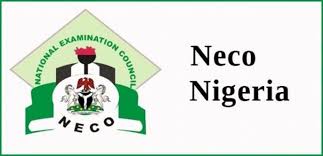…5 firms worth N26.4bn delisted in Q1’25
As Nigeria’s capital market transitions into the second quarter (Q2) of 2025, investment experts are offering a nuanced outlook, balancing optimism over banking sector resilience and corporate actions against concerns of market fatigue. With investors scouring the landscape for fresh catalysts, the trajectory of the Nigerian Exchange (NGX) remains uncertain.
Market analysts warn that in the absence of robust corporate earnings or attractive dividend yields, equities may struggle to gain traction amid elevated interest rates and dwindling consumer purchasing power.
With liquidity constraints and macroeconomic headwinds at play, stakeholders are closely evaluating financial sector profitability, corporate disclosures, and broader economic trends to gauge the NGX’s direction. Victor Chiazor, Head of Research and Investment at FSL Securities Limited, highlighted key challenges that could temper market enthusiasm.
He pointed to the dampening effect of sustained high interest rates, weakened consumer spending, and an overhang of shares from last year’s capital raises. “The influx of additional shares from 2024’s equity raises, coupled with tight monetary conditions and weak disposable income, means investors are awaiting a compelling trigger to reignite confidence,” Chiazor observed.
A major area of focus is the banking sector, which reaped significant gains in 2024 due to foreign exchange (FX) revaluation profits. However, analysts caution that similar windfalls may not materialize in 2025, necessitating a strategic shift towards alternative revenue sources to sustain earnings growth.
“With FX revaluation gains unlikely to provide another windfall, banks must pivot towards organic earnings expansion and shareholder incentives such as strong dividend payouts,” Chiazor added. Despite these concerns, optimism lingers over the banking sector’s recapitalisation drive, which continues to attract substantial investor interest.
Additionally, Nigeria’s oil industry—a critical pillar of national revenue—remains on an upward trajectory, providing a stable macroeconomic foundation. Chiazor further noted that dividend yields hovering around 15 per cent could draw heightened investor interest.
However, in the absence of substantial corporate earnings surprises or attractive payout ratios, market performance may remain tepid through Q2. “If no major triggers emerge, we anticipate a relatively flat performance for equities in the second quarter,” he cautioned.
David Adonri, Managing Director of Highcap Securities Limited, underscored the ongoing stabilization of major enterprises following the naira’s flotation.
As companies recover from FX-induced losses and macroeconomic turbulence, their strengthened financial positions could bolster investor confidence and equity market activity.
“The gradual recovery of key firms post-naira flotation is fostering a more favorable investment climate, reinforcing prospects for increased market participation,” Adonri stated.














